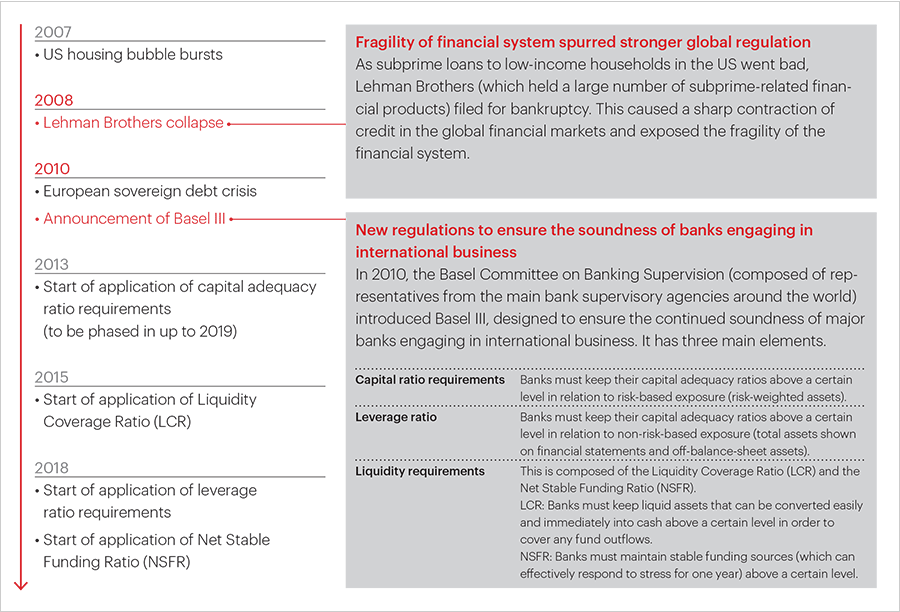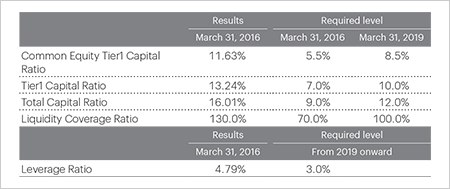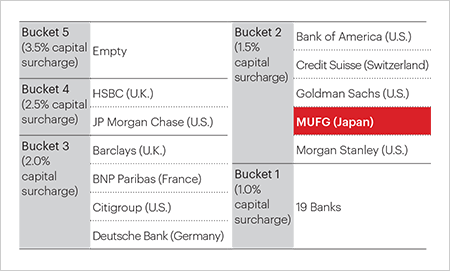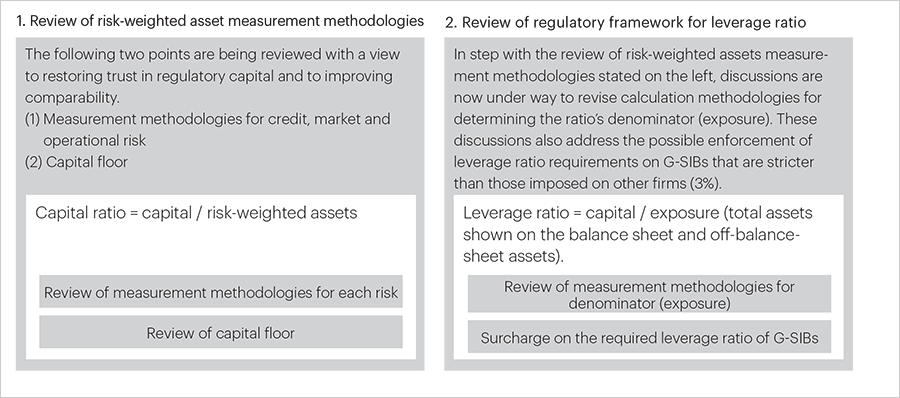Responding to Global Financial Regulation
Since the global financial crisis of 2008, financial institutions have been required to hold to stricter standards of financial soundness and management discipline. New regulations have been introduced and existing regulations, including capital adequacy ratios, have been tightened in the quest to establish a more stable financial system. At the same time, new challenges and issues have been thrown up in the process. In this section we look at the trend for global financial regulation and our response.
Trend in Global Financial Regulation

MUFG’s Response
MUFG has already achieved levels required by the end of March 2019
As the table at right shows, MUFG is in compliance with the levels required by end-March 2016 and it has already reached the levels required by end-March 2019.
In addition, calculation methodologies for capital and leverage ratios are at the center of global discussion.
 Note: Surcharges on G-SIBs’ required leverage ratios are being discussed internationally.
Note: Surcharges on G-SIBs’ required leverage ratios are being discussed internationally.
G-SIBs Facing Demand for Ever More Stringent Compliance
-
1. Surcharge on required capital ratio
G-SIBs refer to Global Systemically Important Banks, institutions whose failure would have a major impact on the global financial system according to the Financial Stability Board whose membership derives from financial supervisory authorities around the world. Basel III stipulates a surcharge on the required capital ratio of G-SIBs (from 1.0% to 3.5%) to be phased in from 2016. This would represent a surcharge of 1.5% for MUFG up to 2019 under the current bucket allocation.

-
2. Requirement to secure greater Total Loss Absorbing Capacity (TLAC)
In addition to Basel III capital requirements, the upcoming regulations, which will be enforced in 2019, will oblige G-SIBs to acquire additional capital and liabilities that meet certain subordinated conditions (TLAC-eligible liabilities). These regulations are intended to ensure orderly resolution without injecting public funds when G-SIBs fail.

Key Issues Going Forward
The following regulatory revisions are at the center of the global discussion:

MUFG Stance
In order to avoid a reprise of the financial crisis, reform and strengthened regulations are required both for individual institutions and the system as a whole. On the other hand, we must ensure that the new regulations do not bring uncertainty to both financial markets and the real economy or hamper healthy development and innovation. It is therefore necessary to carefully consider the impact of new regulations, as well as the coherence between different sets of regulations, all in the context of the global regulatory framework. MUFG believes the fundamental mission of a financial institution is to support economic growth. To realize that goal, we engage in proactive advocacy for the development of a global regulatory framework based on international cooperation and public/private partnerships.
